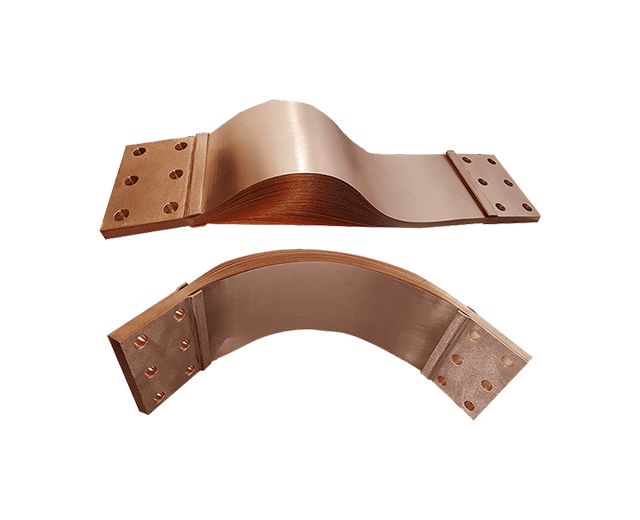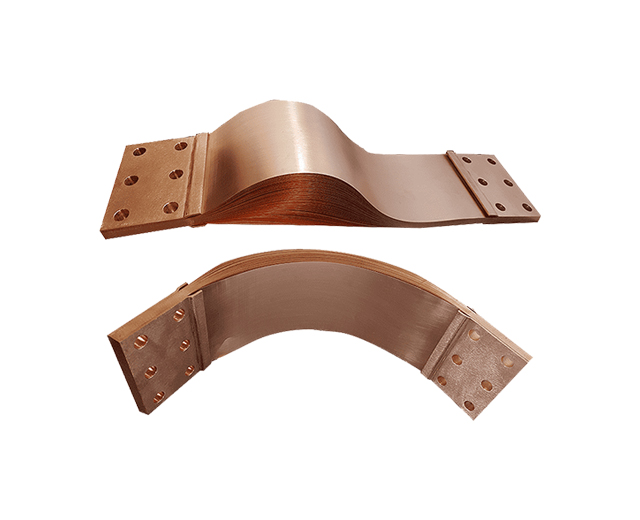

A Copper Nickel Busbar (CuNi Busbar) is a specialized electrical conductor made from copper-nickel alloy, typically CuNi 90/10 or CuNi 70/30 compositions. These Busbars combine the excellent electrical conductivity of copper with the superior corrosion resistance and mechanical strength of nickel, making them ideal for harsh and corrosive environments.

Manufacturing a copper nickel busbar involves several precision processes:
Material Preparation: Selection of high-quality CuNi alloy sheets or foils (commonly 90% copper and 10% nickel or 70% copper and 30% nickel).
Cutting & Forming: CNC machining or stamping shapes the busbar to exact specifications, including slots, holes, or bends.
Surface Treatment: Depending on requirements, surface plating or additional coatings may be applied to enhance corrosion resistance.
Quality Inspection: Dimensional accuracy, conductivity, and mechanical integrity are strictly tested to meet industry standards.
| Parameter | Specification / Description |
|---|---|
| Material Composition | CuNi 90/10 or CuNi 70/30 Alloy |
| Thickness | 0.3mm – 5mm |
| Width | 10mm – 100mm |
| Length | Customizable, typically up to 1000mm |
| Surface Treatment | Natural finish, Nickel plating, Tin plating (optional) |
| Electrical Conductivity | Approximately 20-30% IACS (International Annealed Copper Standard) |
| Corrosion Resistance | Excellent, suitable for marine and chemical environments |
| Mechanical Strength | Higher than pure copper, wear-resistant |
| Installation Method | CNC machined holes, custom bending and slots |
| Application Fields | Marine, power plants, chemical equipment, HVAC systems |
| Compliance Standards | RoHS, CE (custom certifications available) |
Nickel Plated Copper Busbars are widely used where both electrical performance and resistance to corrosion are critical:
Marine Industry: Power distribution in ships and offshore platforms where saltwater corrosion is prevalent.
Chemical Processing: Equipment and panels exposed to aggressive chemicals and corrosive atmospheres.
Heat Exchangers: Busbars in HVAC and cooling systems requiring thermal and corrosion resistance.
Power Distribution Systems: Industrial electrical panels and switchgear operating under harsh conditions.
Other Corrosive Environments: Electrical components in coastal, petrochemical, or mining installations.
Excellent Corrosion Resistance: Copper nickel alloys resist oxidation and degradation in saltwater, acidic, and alkaline conditions.
Good Electrical Conductivity: While slightly lower than pure copper, CuNi busbars provide sufficient conductivity for demanding electrical loads.
High Mechanical Strength: Nickel addition improves durability and wear resistance.
Thermal Stability: Suitable for elevated temperature applications without significant loss of performance.
Customizable Dimensions: Thickness, width, and shape can be tailored for specific installation needs.
Design considerations for Nickel Plated Copper Busbars include:
Current Load and Conductivity: Adjust cross-sectional area based on amperage requirements.
Environmental Conditions: Select alloy grade (90/10 vs. 70/30) based on corrosion level.
Mechanical Requirements: Consider bend radius and mounting methods.
Thermal Management: Ensure sufficient surface area or cooling mechanisms.
Compliance: Design to meet relevant electrical and safety standards.
G and N Fortune Limited specializes in manufacturing premium Nickel Plated Copper Busbars, offering:
High-Quality CuNi Materials: Certified CuNi 90/10 and 70/30 alloys with consistent performance.
Precision CNC Fabrication: Customized busbars to exact client specifications with fast turnaround.
Corrosion Resistant Solutions: Expert engineering for harsh industrial and marine environments.
Flexible OEM/ODM Services: Tailored production runs from prototypes to large scale.
Global Delivery & Support: Reliable logistics and responsive customer service worldwide.
Q1: What is Copper Nickel Busbar used for?
A: Nickel Copper Flexible Busbars are used in corrosive environments such as marine, chemical processing, HVAC, and industrial power systems where both electrical conductivity and corrosion resistance are required.
Q2: What are the common copper-nickel alloy compositions for busbars?
A: The most common alloys are CuNi 90/10 (90% copper, 10% nickel) and CuNi 70/30 (70% copper, 30% nickel), offering different balances of conductivity and corrosion resistance.
Q3: Can Copper Nickel Busbars be customized?
A: Yes. We offer OEM/ODM services with custom sizes, thicknesses, hole patterns, and surface treatments to meet specific application needs.
Q4: How does Copper Nickel Busbar compare to pure copper busbar?
A: Copper nickel busbars have better corrosion resistance, especially in saltwater and chemical environments, although their conductivity is lower than pure copper.
Q5: What surface treatments are available for Copper Nickel Busbars?
A: Typical treatments include natural finish, nickel plating, and tin plating to enhance corrosion resistance and solderability.
Q6: What is the typical lead time for Copper Nickel Busbar orders?
A: Standard lead times range from 7 to 20 working days depending on order size and customization complexity.